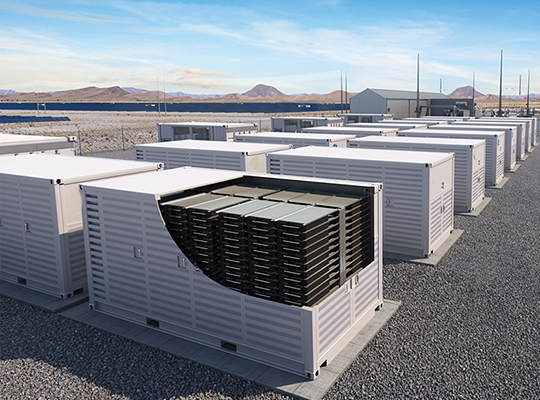Artificial intelligence is an emerging field that is revolutionizing the lives of individuals. The potential applications of AI are endless, and the adoption of this technology holds immense potential for significantly benefiting the renewable energy sector. AI is reshaping the operations of the energy industry, transitioning it toward a more efficient, sustainable, and secure future. This transformation ranges from renewable energy forecasting and enhancing nuclear power plant safety measures to smart grid management.
One of the key advantages of utilizing artificial intelligence in renewable energy market is heightened efficiency. AI assists in recognizing trends and patterns that can aid in enhancing the productivity of renewable energy systems. For instance, AI can be utilized to forecast maintenance requirements before the issue persists and to maximize solar panel placement to optimize energy output.
AI can also support renewable energy companies in various ways, ranging from optimizing production to forecasting demand. For instance, through the analysis of historical weather data, AI aids solar and wind farms in predicting optimal conditions for power generation. Subsequently, this information allows for adjustments in production levels, ensuring maximal power generation during periods of high demand.
Role of AI in smart grid technology:
AI plays a crucial role in managing smart grids, which are electricity supply networks employing digital communications technology to identify and respond to local usage variations. Similarly, AI optimizes resource allocation—for instance, during sudden surges in demand, it enhances electricity distribution to prioritize areas needing power the most, preventing blackout risks.
Smart grids incorporated with artificial intelligence can identify disruptions or faults in the grid, like outages or failures. AI algorithms can track the accurate site of the threat and return power to decrease downtime, enhance grid reliability and decline service interference.
Energy grids are vulnerable to cyberattacks, and data servers are frequent targets for hackers. Employing AI and machine learning can enhance security measures, as AI helps in comprehending potential threats and proactively preventing them, thereby ensuring the safety and protection of these systems. The smart grid offers essential preventive and predictive maintenance functionalities, crucial for its operation. In short, the AI-powered smart grid significantly improves forecasting accuracy, elevating the grid’s resilience and improving its security measures.
AI for predictive maintenance:
By integrating AI, energy companies can forecast potential equipment failures or maintenance requirements. Machine learning processes vast datasets from diverse sources like usage statistics, weather patterns, and past maintenance logs to anticipate potential breakdowns preemptively. This methodology minimizes downtime, cuts repair expenses, and enhances the general reliability of energy infrastructure.
AI for data digitalization:
The rapid digitization of the energy sector in the past few years has been significantly driven by the pivotal role of AI. AI has the potential to revolutionize energy companies by automating grid data collection and establishing analysis frameworks.
Future of AI in the renewable energy industry:
AI represents a significant potential in the energy sector and is anticipated to continue to perform a function in maximizing energy consumption, distribution, and generation. Highly practical AI-based technologies can decline greenhouse gas emissions, improve the stability of grids and the productivity of energy sources. Predictive maintenance is expected to improve equipment reliability and decrease downtime. AI’s involvement will further support initiatives in carbon capture and storage, contributing significantly to the collective effort to combat climate change.
AI holds the potential to revolutionize the entire renewable energy sector. Through AI-powered automation, intelligent decision-making, and enhanced efficiency, a future emerges where renewable energy becomes more accessible than ever. As technology progresses and becomes increasingly advanced, AI will shape the renewable energy industry in the upcoming years.
Author Bio– Gayatri Mohite is an emerging author who loves to explore new things. An addiction to reading motivates her to write. She also loves to sing, travel, and cook. A fresher who is constantly upgrading her skills has embarked on a new journey to touch up her expertise even more.













